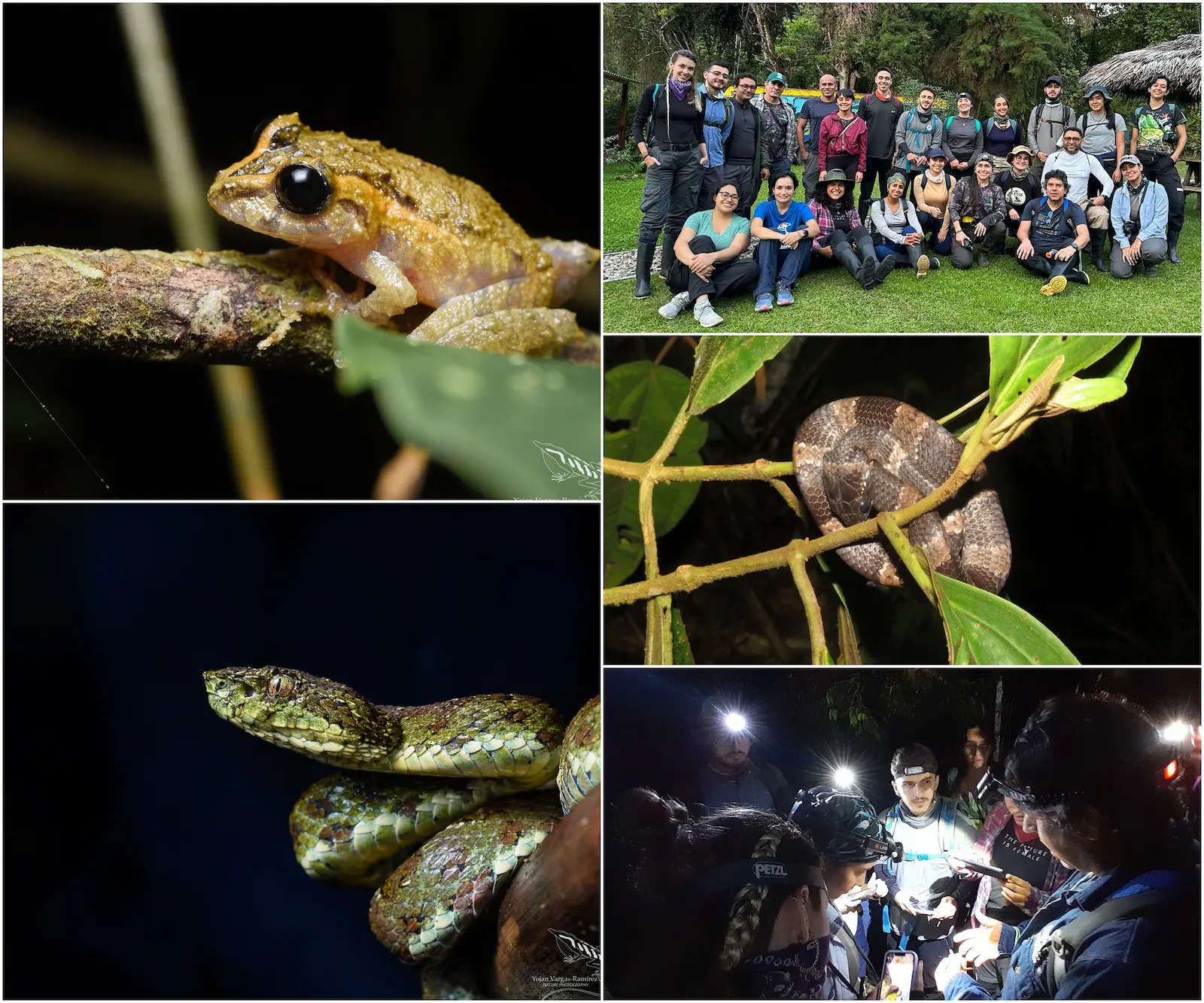
In the heart of Colombia’s biodiverse landscapes, Women for Conservation (W4C) proudly celebrates a significant stride in empowering women in amphibian research. Partnering with ProAves, our mission to break barriers for Colombian women scientists has found a remarkable success in the recently concluded course “Techniques for the Study of Colombian Amphibians”.
Held for 4 days at the ProAves Cerulean Warbler Nature Reserve in San Vicente de Chucurí, Santander, this educational training course exemplifies our commitment to promoting gender equality in science.
Over the years, W4C partner ProAves has championed projects focusing on amphibian species, recognizing their biological significance amid population declines and threats leading to the disappearance of several species. In line with our dedication to advancing amphibian conservation science, the course welcomed 15 undergraduate students from 12 universities across Colombia, pursuing degrees in biology, environmental engineering, and biology education.

The course covered diverse topics, including species distribution models, taxonomy, diversity, data analysis, sampling techniques, and bioacoustics. Renowned researchers and educators, such as Ph.D. Wilmar Bolívar, Ph.D. Oscar Murillo, Ph.D. Juan Manuel Daza, Magisterr Eliana Barona Cortés, and Ph.D. María Juliana Bedoya Durán, enriched the learning experience. The guidance of ProAves Colombia’s Director of Research, Alex Cortés, and the Subdirector of the Central Region, Johana Castro, further amplified the impact of this educational endeavor.
Crucially, over half of the participants were women, a testament to our mission of promoting gender inclusivity in scientific pursuits. Herpetologist Johana Castro, who played a key role in teaching the course, exemplifies the success of our Women Forest Rangers Program. Notably, she serves as the Conservation Director for six ProAves Reserves dedicated to protecting endangered wildlife.


The course provided a platform for practical application, with teams collaborating on field projects to collect data, conduct analyses, and present results. Within the ProAves Cerulean Warbler Nature Reserve, a remarkable 16 species of herpetofauna, including lizards, snakes, and frogs, were documented.
In the words of participant Natalia Mejía from the University of Valle, “Personally, what I liked most about this course was being able to collaborate with people who share the same passion for amphibians. I also loved learning new techniques for monitoring and researching amphibians. I feel that it has been very valuable, especially the learning experiences and tools that the professors have provided.”
This exchange of knowledge not only strengthens scientific understanding but also contributes to conservation efforts on the ground. ProAves and Women for Conservation remain committed to creating inclusive spaces that propel science, knowledge exchange, and wildlife conservation. The success of the “Curso Nacional de Técnicas para el Estudio de los Anfibios en Colombia” marks a pivotal chapter in our collective journey toward empowering women scientists and safeguarding Colombia’s extraordinary biodiversity.

